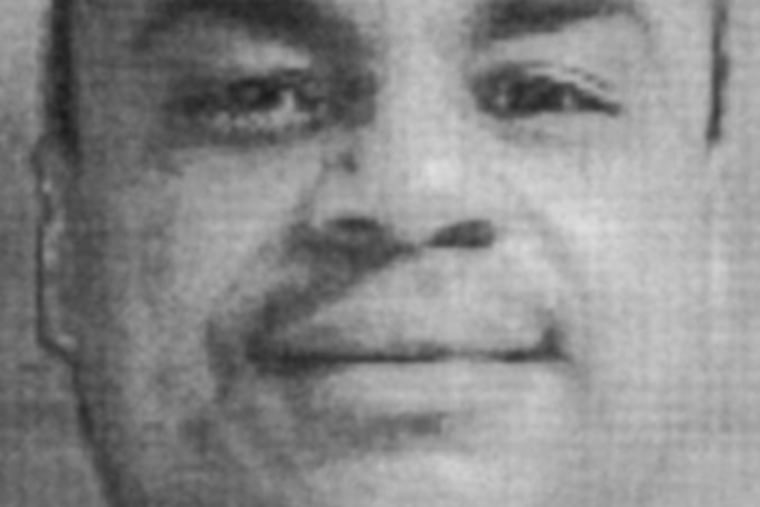Phila. prosecutor calls death-penalty plea by Terrance Williams bogus
The prosecutor who put Terrance Williams on death row denounced Williams' admitted accomplice Thursday, rejecting as a lie the contention that Williams killed Amos Norwood in a sexual rage and that authorities ignored evidence of his motive.

The prosecutor who put Terrance Williams on death row denounced Williams' admitted accomplice Thursday, rejecting as a lie the contention that Williams killed Amos Norwood in a sexual rage and that authorities ignored evidence of his motive.
"It's a complete lie," Andrea Foulkes said when asked about new statements by Marc Draper. Draper now says Foulkes and detectives ignored his information about a sexual motive behind the 1984 killing of Norwood, 56, in West Oak Lane.
Draper's account of Williams' alleged abuse by Norwood is the evidence being used by Williams' lawyers to try to block his scheduled Oct. 3 execution.
Answering questions from Williams' lawyer Billy Nolas, Foulkes said Draper "absolutely did not tell me this case was about Terry Williams having sex with Mr. Norwood."
Draper, in affidavits provided this year in Williams' defense, asserted that Foulkes and detectives told him to say Norwood was killed in a robbery.
Foulkes, now a federal prosecutor, testified for seven hours before Philadelphia Common Pleas Court Judge M. Teresa Sarmina on a motion by Williams' lawyers to stay his execution.
Draper, 46, who like Williams was an 18-year-old Cheyney University freshman in 1984, testified briefly and is scheduled to return when the hearing resumes Monday.
Williams, 46, has exhausted state and federal appeals and will be executed unless his legal team can convince Sarmina that newly discovered evidence merits an emergency stay.
Williams' lawyers say that in addition to Draper's claim of a sexual motive, the jury that condemned Williams to death should have known about Foulkes' promise to write to state parole officials describing Draper's cooperation.
Foulkes acknowledged that she wrote the letter in 1988 and gave it to Draper's father, George, a city police officer, to use when Marc Draper decided to try to get his life term commuted.
Foulkes conceded to Sarmina that in retrospect, she should have told the jury about the letter when she questioned Draper about the terms of his guilty plea.
But the prosecutor also said she made clear to Draper that a commuted sentence was a long shot and that he would serve decades in prison before it would be considered.
Sarmina puzzled aloud why Draper pleaded guilty to a crime that guaranteed him life in prison.
Foulkes said Draper might have faced the death penalty had he gone to trial, although the case against him was not as strong as the case against Williams.
"Basically, he really didn't get a very good deal," Foulkes said.
On that, Draper agreed. Testifying Thursday, Draper told the judge: "I guess, looking at my prosecution, I feel like I was wronged. I didn't deserve to get a second-degree life sentence. I don't think so."
But Draper said his recantation was not based on anger but his rebirth as a Christian.
"As a man of faith, a man of God, I don't want to see anybody die in that manner," Draper said, referring to Williams.
Foulkes maintained that in trial preparation, preliminary hearings and Williams' 1986 trial, Draper never wavered in his account: Norwood was killed in a robbery, and he was appalled when Williams started beating Norwood with a tire iron.
In court filings Thursday, the district attorney's office urged Sarmina to dismiss the bid for a stay of execution, saying the claims of sexual abuse had been heard and rejected by state and federal appeals courts.
Draper raised Foulkes' promise of support for parole in 2000, prosecutors argued.
After the hearing, Deputy District Attorney Ronald Eisenberg repeated that "none of this is new."
"The issue of his alleged new information is not new," Eisenberg said. "This defendant has always had it with him and if he wanted to, he could have brought it up at trial."
Eisenberg referred to Foulkes' testimony that Williams never raised the issue of sexual abuse by Norwood at his trial. Instead, Foulkes testified, Williams testified that he was not there and that Norwood was killed by Draper and another person.
Norwood, a volunteer at St. Luke's Episcopal Church in Germantown, was found in Ivy Hill Cemetery, his body charred beyond recognition and his skull shattered by a tire iron.
The use of some of Norwood's stolen credit cards eventually led police to Draper, who implicated Williams and agreed to testify at two murder trials in which Williams was the accused killer.
While Draper was being questioned in the Norwood case, he told detectives that Williams had told him about a murder six months earlier: the Jan. 26, 1984, stabbing of Herbert Hamilton, 50, of West Philadelphia.
The jury in the Hamilton case convicted Williams of third-degree murder, apparently believing Draper's testimony that Williams killed Hamilton because the older man tried to force him to have sex.